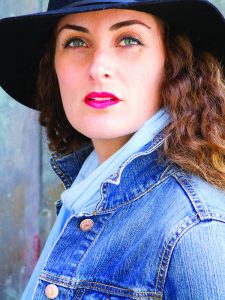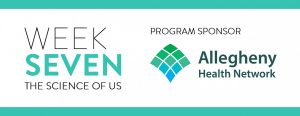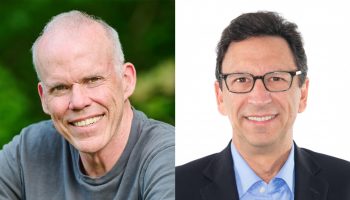It’s only natural to fear the potential of rapidly advancing technology. By portraying artificial intelligence as the root of dystopian dangers and apocalyptic reverberations, science fiction has a tendency to leave its readers dreading the rise of self-aware robotic overlords.

But Flynn Coleman, an international human rights attorney, said there is a more tangible reason people don’t trust algorithms.
“These aren’t just outlandish future concerns,” Coleman said. “Algorithms are already racist, sexist, incredibly prejudiced and incredibly biased. We are way deeper into this than we realize.”
However, she added, “I’m working on it.”
Coleman will deliver her lecture, “The Human Algorithm,” at 10:45 a.m. EDT on Friday, Aug. 14, on the CHQ Assembly Video Platform, as part of the Week Seven Chautauqua Lecture Series theme, “The Science of Us.” Coleman is a writer, public speaker, professor, Harvard fellow and social innovator who has worked with the United Nations, the United States federal government, and international corporations and human rights organizations around the world.
The premise of Coleman’s presentation is her 2019 book, A Human Algorithm: How Artificial Intelligence Is Redefining Who We Are, which examines the impact intelligent technology “can and will have on humanity.”
We are only as safe and healthy as the most marginalized among us,” Coleman said. “If we don’t build equity, empathy and justice into our societal structures and technological tools, we start to see that the fabric of our nation tears.”
“I am always thinking about how we can use human ingenuity and innovation to create a better world and imagine a better society for the generations that will be,” she said. “To talk about the future of technology, you must also include talking about these intelligent technologies we are creating that could be smarter than we are or could ever be.”
“Everything is intertwined and connected,” she said, so one also can’t talk about intelligent technologies without talking about reconfiguring economic and educational systems alongside them.
“We are only as safe and healthy as the most marginalized among us,” Coleman said. “If we don’t build equity, empathy and justice into our societal structures and technological tools, we start to see that the fabric of our nation tears.”
The goal then becomes centering the most marginalized; the people most proximate to problems need to be most proximate to solutions.
“The technology we build will mirror its designers, so I knew from the beginning we needed more inclusion, representation and diversity at the table,” Coleman said. “We should all have a voice and a say in the future of tech, because it affects everyone. We need to build tools we would be proud to leave for the ages.”
To “wholeheartedly believe it’s for the best,” Coleman argues it is critical to instill values, ethics and morals into robots, algorithms, and other forms of AI. Equally important then is developing and implementing laws, policies and oversight mechanisms to protect people from “tech’s insidious threats.”
Avoiding that hard work is minacious, according to Coleman.
“Exclusionary practices in which our future is being built without that democratic process is incredibly dangerous,” she said. “These tools will be used no matter what; the only question is by who, and will we be using them for the good of all or only sharing the benefits with a select few?”
Viewing artificial intelligence as a “partner for all” rather than a threat or a savior, Coleman said can serve as a “lens through which we can view humanity.” These machines, while challenging our personal beliefs and our socioeconomic world order, also have the potential to “transform health and well-being, alleviate poverty and suffering, and reveal further mysteries of intelligence and consciousness.”
No matter what the problem is — from a pandemic to climate change — Coleman said the mission is to learn how to treat one another better in the process of solving it, regardless of whether or not technology takes part.
“When that small part of ourselves says that to feel better about ourselves we need someone else to feel less than, that’s the root of all danger that comes our way,” Coleman said. “You don’t have to be exceptional and the only center of the universe to be powerful and brilliant. Making room for other kinds of brilliance and living things? That widens our lens.” 
This program is made possible by the Week Seven “Program Sponsor” Allegheny Health Network and The Charles and Gail Gamble Lecture Endowment.




